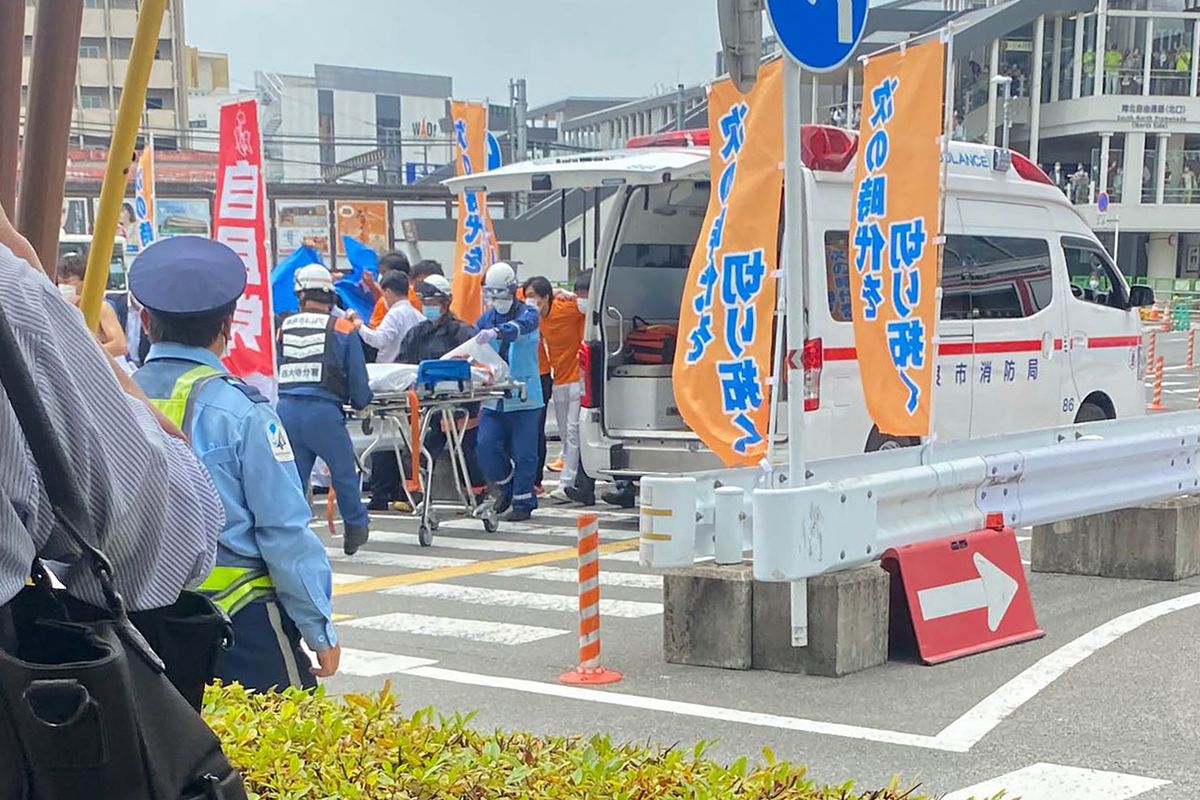Former Japan PM Abe Shot, Feared Dead

“The first shot sounded like a toy bazooka. He didn’t fall and there was a large bang. The second shot was more visible, you could see the spark and smoke,” she added.
“After the second shot, people surrounded him and gave him a cardiac massage.”
Abe was bleeding from the neck, witnesses said and photographs showed. He was reportedly initially conscious but subsequently lost consciousness, NHK reported.
An official at Nara Medical University hospital told AFP: “What we can share now is that his transfer here has been completed,” declining to comment on Abe’s status.
Officials from the local chapter of Abe’s Liberal Democratic Party said there had been no threats before the incident and that his speech had been announced publicly.
Prime Minister Fumio Kishida, himself on the campaign trail, was returning to Tokyo and expected to speak upon arrival.
Jiji reported a government task force had been formed in the wake of the incident, and the reaction was already beginning to pour in.
US Secretary of State Antony Blinken voiced alarm over the shooting.
“This is a very, very sad moment,” Blinken told reporters at a G20 meeting in Bali, saying the United States was “deeply saddened and deeply concerned”.
Thailand’s Prime Minister Prayut Chan-O-Cha was “very shocked” at Abe’s shooting, the kingdom’s foreign affairs minister said, describing the pair as friends.
Profoundly sad and shocking
Kishida’s special advisor Gen Nakatani told reporters “terror or violence can never be tolerated,” Jiji reported.
Also read: Japan Thanks Indonesia for Scrapping Coal Export Ban
Abe, Japan’s longest-serving prime minister, held office in 2006 for one year and again from 2012 to 2020 when he was forced to step down due to the debilitating bowel condition ulcerative colitis.
He is a hawkish conservative who pushed for the revision of Japan’s pacifist constitution to recognize the country’s military and has stayed a prominent political figure even after his resignation.































